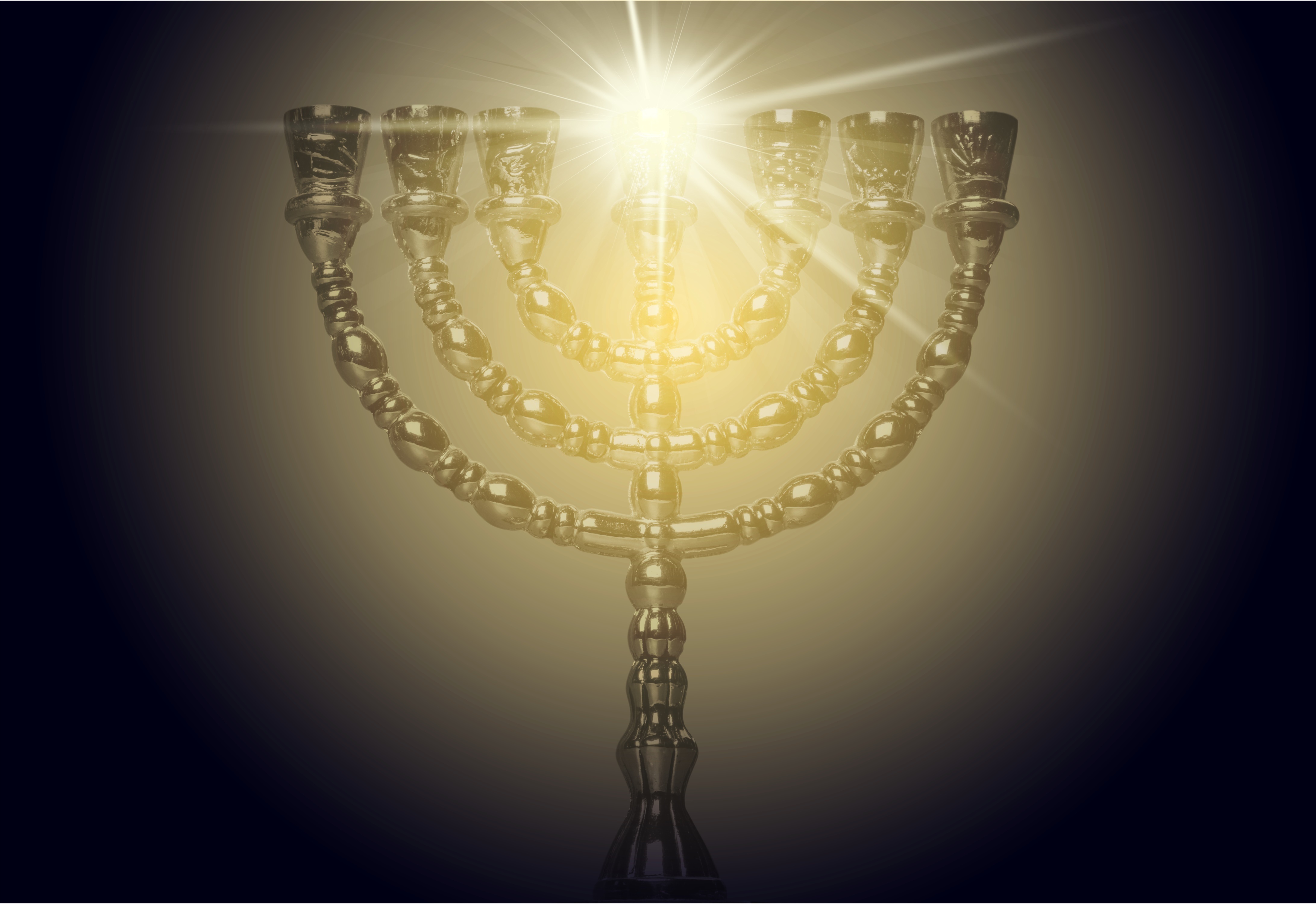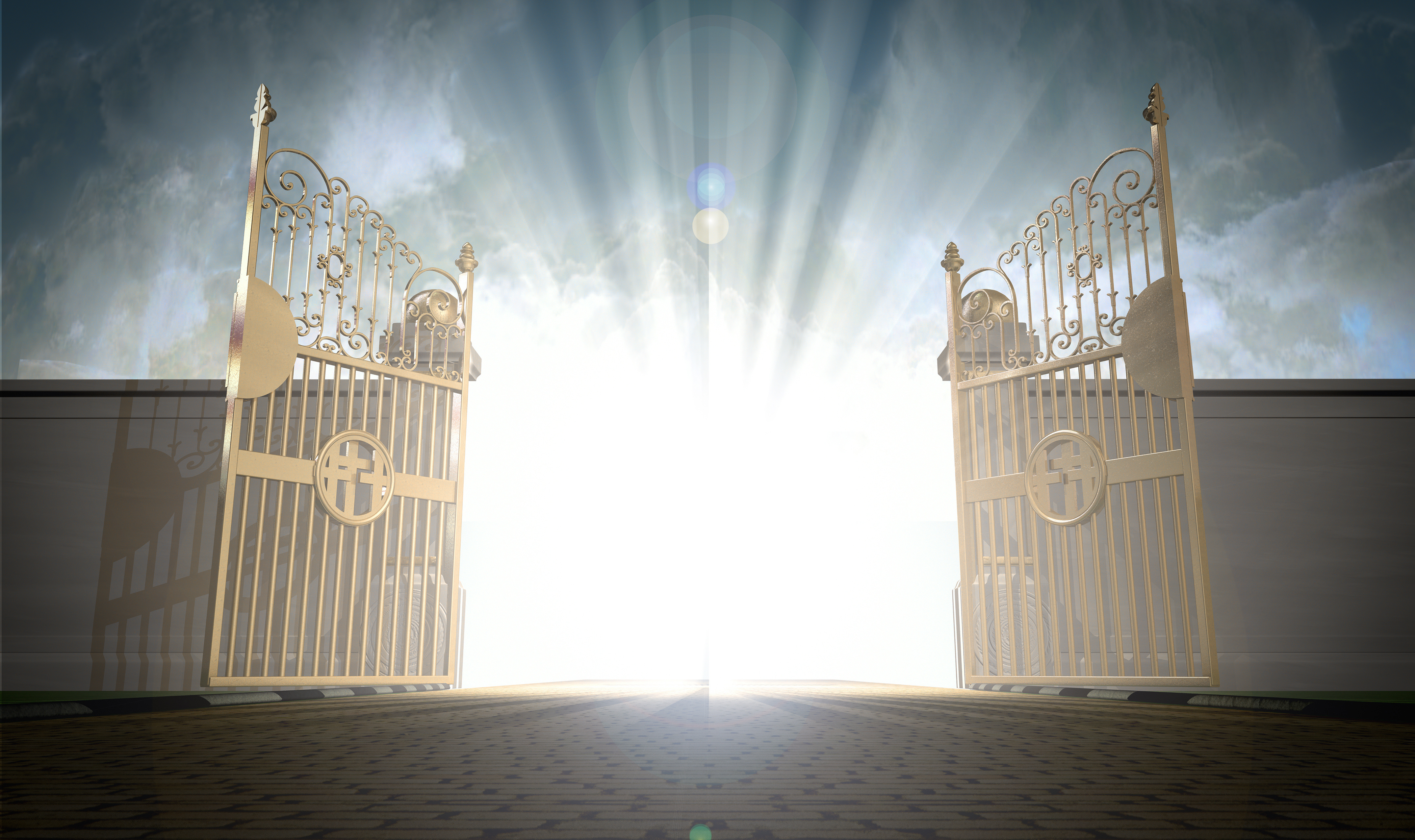Tag Archives: Bride of Yeshua
John the Baptist-Type Preachers Are Preparing the Bride
As prophesied by Isaiah and Malachi the prophets, YHVH is currently raising up John the Baptist-style preachers to prepare the way for Yeshua’s (Jesus’) second coming. They are calling Christians out of the spiritual Babylon of churchianity, which is a mixture of truth and error, good and evil, and to repentance and back to their Torah-based, biblical roots.
These preachers are NOT pansies in the pulpits like the majority of Christian pastors, but are rough-hewn, plain spoken and fearless servant of YHVH Elohim, who are laying the spiritual ax to the tree of the anemic, lukewarm, idol-worshipping, man-pleasing religious system called modern Christianity. Can you handle this, or are you content to play church and remain in your spiritual state of lukewarm complacency?
Watch this video, be challenged to grow up spiritually, so you will be the chaste and righteous bride for which Yeshua the Messiah is coming back to marry.
The Bible is clear: not all Christians will be the bride of Yeshua! The choice is yours.
Who is the bride of Yeshua? (Part Two)

John the apostle in the Book of Revelation (Rev 19:7) says that the wife of Yeshua has made herself ready for him. Who will be the bride or wife of Yeshua?
In a general sense, all redeemed believers are the bride of Yeshua—or more correctly, have the potential to be the bride of Yeshua. Paul assumed this (2 Cor 11:2–3). All redeemed believers are presently betrothed to Yeshua. Yet not all believers will become the wife of Yeshua (Matt 25, the Parable of the 10 Virgins). Some will remain pure and undefiled by being faithful to YHVH’s Torah Word, and others will fornicate with the world by being faithful to some of YHVH’s Torah, but by also following foreign or pagan gods and lovers. Only virgins who have not defiled themselves with “men” (a biblical metaphor for spiritual fornication with the world) will be eligible to be the bride of Yeshua. These are the 144,000 mentioned in the Book of Revelation (Rev 14:4). These are the true saints—the set-apart or holy ones, who adhere to the Torah and to Yeshua the Messiah (Rev 14:12). The church of Yeshua is currently being tested or refined and the wheat and tares are being separated. Yeshua wants a pure bride. Judgment begins first at the “house” of Elohim (1 Pet 4:17).
In conjunction with the end times wrath of Elohim that will come upon this world due to Toralessness are the Elohim’s seven thunders judgments (Rev 10:3–4), which are possibly YHVH’s wrath upon a Torahless bride and world. Leviticus speaks of four sets of seven judgments that would come upon YHVH’s people who turned away from Torah (Lev 26:14ff). Similarly, the book of Revelation reveals that in the end days four series of judgments that will come upon the world. They are the seven seals, the seven trumpets, the seven thunders, and the seven bowl judgments.
Like the law of the jealous husband who suspects his wife of adultery discussed in the Torah (Num 5:11–31), the faithfulness of all believers will be tested. In the end times, all the saints will go through tribulation and the great tribulation, but only the betrothed bride who is guilty of adultery will go through the wrath of Elohim. Those saints who refuse to walk in Torah and who are guilty of Torahlessness will be rejected of Yeshua because they didn’t know him intimately (Matt 7:21–23). We know YHVH intimately by keeping his Torah-commands (1 John 2:6–7). The wrath of Elohim are the bitter waters that the adulterous bride of YHVH will have to swallow (cp. Num 5:11–31). Like the wife suspected of adultery, all who will follow Yeshua must eat the words of Torah. For those who have been faithful to Torah, which is their marriage vows, Torah is sweet like honey. To those who have not been faithful, the judgments Torah spells out for those not being faithful to the curses for Torah-disobedience will be like bitter waters in their belly. In Revelation 10 (cp. Ezek 2:8–10; 3:1–3), John eats a little book. Is this Torah, which specifies curses that come upon all those who sin by violating it (1 John 3:4)? When we love Yeshua by obeying YHVH’s (John 14:15), they will be sweet like honey to us (Ps 119:103), since we don’t come under the curses they specify for disobedience. Torah-obedience brings blessings in this life and the next life; Torah is life (Deut 30:19), and Yeshua is the Living Torah incarnate (1 John 1:1, 14) and he is life (John 14:6).
At the same time in the last days, there will be a remnant on earth who have heeded the call of Elohim to remember the good ancient paths of Torah (Jer 6:16), and whose hearts have turned back to the fathers of their faith in the end days before the day of YHVH’s wrath and who are remembering Torah (Mal 4:3–6).
Those people who are heeding the call of Elohim through his Spirit to return to the ancient paths are those who have turned back to the biblical Hebraic faith and have reconnected to spiritual root of Israel—to the spiritual fathers of their faith. They’ve rediscovered their tribal and spiritual identity as grafted in (Rom 11:11–32), as redeemed, one new man and non-Gentile Israelites (Eph 2:11–19)—as the Israel of Elohim (Gal 6:16). These saints have chosen to begin living like Israelites. They understand the Jewishness of Yeshua and want to be Jewish like him and pleasing to him (John 14:15). They want to know YHVH more deeply by keeping his commandments (1 John 2:3–6), and they are putting on robes of righteousness, which is Torah-obedience (Rev 19:6–7)
These end time saints are part of the John the Baptist, Elijah forerunner generation of royal Melchizedek priests under Yeshua (1 Pet 2:9; Heb 7), and kings in training who are helping to prepare the way for Yeshua.
They saints are the wise virgins who have awakened with oil in their lamps. Oil represents Torah and the anointing of YHVH’s Spirit. Without the Torah and the anointing of YHVH’s Spirit in our lives, there will be no Torah-light.
These called out ones have left off their lukewarm, deaf, naked and blind ways of a Torahless and Laodicean lukewarm church and have opened the door to the real Jewish Yeshua to come into their lives; they have exchanged a paganized, Greco-Roman Jesus for their the real Hebraic Yeshua. To be the bride of Yeshua, you must truly know him, not merely know about him through the eyes of a cultural Christianity, Christo-pagan paradigm.
The bride of Yeshua will fit the definition of the end time saints: They will be Torah observant and have the faith of Yeshua (Rev 12:17; 14:12).
Scripture likens redeemed believers to a virgin (2 Cor 11:2). Some believers are wise virgins, and some are foolish virgins (Matt 25:1–13). There will be different levels of rewards in the kingdom of Elohim; some of the virgins will be least in the kingdom and some will be the greatest in the kingdom depending on their Torah-obedience level (Matt 5:19). Which one are you?
Who is the bride of Yeshua? (The answer many surprise you!)—Part One
What does the Bible say about the spiritual bride of Yeshua the Messiah? Many biblically informed The Messiahians believe that all who are “saved” will automatically become the bride of the Messiah. Is this what the Bible really teaches? In Matthew 5:19, Yeshua reveals that there are levels of rewards in his eternal kingdom based on one’s good works relating to Torah-obedience. Some saints will be the least in his kingdom and some will the be the greatest in his kingdom. How does this relate to who will be the bride of Yeshua and who will not be the bride? In this article, we will discuss these issues and attempt to answer these questions.
Yeshua Will Marry Someone When He Returns
In his Parable of the Wedding Feasts, Yeshua makes clear prophetic allusions to his upcoming marriage to his spiritual bride.
The kingdom of heaven is like unto a certain king, which made a marriage for his son… (Matt 22:2)
The Saints Are the Bride of Yeshua
Who is the spiritual bride of Yeshua? Both the Tankah (Old Testament) and the Testimony of Yeshua (the New Testament) speak of people of Elohim marrying YHVH.
Wherefore, my brethren, ye also are become dead to the law by the body of The Messiah; that ye should be married to another, even to him who is raised from the dead, that we should bring forth fruit unto Elohim. (Rom 7:4)
For I am jealous over you with godly jealousy: for I have espoused you to one husband, that I may present you as a chaste virgin to The Messiah. (2 Cor 11:2)
Let us be glad and rejoice, and give honour to him: for the marriage of the Lamb is come, and his wife hath made herself ready. And to her was granted that she should be arrayed in fine linen, clean and white: for the fine linen is the righteousness of saints. And he saith unto me, Write, Blessed are they which are called unto the marriage supper of the Lamb. And he saith unto me, These are the true sayings of Elohim. (Rev 19:7–9)
And I will betroth thee unto me for ever; yea, I will betroth thee unto me in righteousness, and in judgment, and in lovingkindness, and in mercies. I will even betroth thee unto me in faithfulness: and thou shalt know YHVH. (Hos 2:19–20, see verses 14–23 for context)
Here Hosea is speaking about a future event where YHVH will regather lost and scattered Israel into the land of Israel make a marriage covenant with them where they will be his people and he Continue reading
A Wake-Up Word to the Seven Churches of the Last Days
Will you pass the test and make it into YHVH kingdom?
Life is a series of tests. We either pass or fail them. YHVH is the school teacher who determines whether we will pass or fail, not us. His Word is our text book that tells us how to pass. If we learn the lessons and put to practice the things we have learned, we will pass. If not, we will fail.
The problem is that we’re not just in a regular school classroom where if we fail, it’s really not a big deal in the bigger scope of life. Our classroom is this life. Whether we pass or fail will determine not only whether we will obtain eternal life or eternal damnation, but if we pass, the grade we get will determine our level of rewards in YHVH’s eternal kingdom. There are a couple of things going on here.
When YHVH calls us with his holy calling and we respond, we have a choice. The choice we make will determine whether we will be the least or the greatest in his kingdom (Matt 5:19). If we choose to obey him only a little, we will be least in his kingdom. If we choose to obey him all the way, we will be the greatest in his kingdom. Our level of obedience to his commandments determines our level of rewards in his kingdom.
If we give YHVH our all, like Ruth did when she chose to forsake the world and follow Naomi, we can become the bride of Yeshua. Ruth is a prophetic picture of Yeshua’s bride. The heart-attitude of the bride is: your people will be my people, your Elohim will be mine, and where you go, I will go.
Yeshua refers to his bride in the book of Revelation. She is unreservedly faithful to him. Yeshua’s bride is comprised of those who are follow the Lamb of Elohim wherever he goes; they don’t just follow him only when it’s convenient!
And I looked, and, lo, a Lamb stood on the mount Sion, and with him an hundred forty and four thousand, having his Father’s name written in their foreheads. And I heard a voice from heaven, as the voice of many waters, and as the voice of a great thunder: and I heard the voice of harpers harping with their harps: and they sung as it were a new song before the throne, and before the four beasts, and the elders: and no man could learn that song but the hundred and forty and four thousand, which were redeemed from the earth. These are they which were not defiled with women; for they are virgins. These are they which follow the Lamb whithersoever he goeth. These were redeemed from among men, being the firstfruits unto God and to the Lamb. And in their mouth was found no guile: for they are without fault before the throne of God. (Rev 14:1–5)
Yeshua demands total and unreserved commitment from his disciples. He said that his followers would need to love him more than anyone else including one’s closest family Continue reading
The Terms and Conditions for Coming into the Presence of the Almighty
When coming into the Presence of Elohim, let’s never forget how high and set-apart he is and how low and defiled we are!
Exodus 19:10, Consecrate them today. How did Israel, as a bride-to-be, prepare herself to meet with YHVH? How are YHVH’s people now to be preparing themselves for their spiritual marriage with Yeshua? (Compare Exodus 19:10 with Revelation 19:7–9.) What is the righteousness of the saints (mentioned in Rev 19:8)? Righteousness is defined in Psalms 119:172 as, “… all thy [Torah] commandments are righteousness.” If what the Scriptures define as righteousness (i.e. the Torah) was “nailed to the cross,” as is popularly taught, then who is in error? The Scriptures or those who teach against YHVH’s Torah laws?
Discussion A. Why is it essential to study the example of the children of Israel preparing themselves to come into the presence of YHVH in Exodus 19? After all, if Yeshua did it all for us, we can just come boldly before the Father’s throne anytime, anyway we want, right (Heb 4:16)?
Let’s explore this concept a little to see what the Bible has to say about it.
Paul says in I Corinthians 10:11,
Now all these things happened to them [i.e. the children of Israel] as examples, and they were written for our admonition, upon whom the ends of the ages have come. (See also Rom 15:4.)
The writer of Hebrews has something similar to say in his prefatory remarks to his statement in Hebrews 4:16 about coming boldly before the throne of YHVH through the merits of the sinless righteousness of Yeshua our High Priest. In the preceding several Continue reading
Being Cast Into Outer Darkness Versus Being Cast Into the Fire
Matthew 22:13, Outer [or exterior] darkness. This is likely not a reference to destruction in the lake of fire, which is the fate of the wicked, but rather the place where those who will be least in the kingdom (Matt 5:19) will reside.
In this same parable, Yeshua alludes to the lake of fire in verse seven where he mentions the fate of the wicked who refused the invitation to the wedding of the king’s son. This refers to those who refuse to respond favorably to the gospel message.
Those who are invited guests to the son’s wedding, but who weren’t properly attired, are those saints who will be in the kingdom of Elohim, but who will not have attained the higher reward of being the bride of the king’s son (i.e. the bride of Yeshua). They will not be living in close proximity to Yeshua as his bride in the New Jerusalem, which is a place where there is no darkness or night, for Yeshua who is the Sun of Righteousness (Mal 4:2) and whose face shines like the suns (Rev 1:16) will be the light of the New Jerusalem (Rev 21:23; 22:5). Rather, the place of reward for those who weren’t properly attired in robes of righteousness (Matt 22:11) will be to live further away from the New Jerusalem somewhere on the New Earth. These immortalized saints appear to those who Yeshua refers to in Matt 5:19 as “the least in the kingdom.”
Moreover, light is a biblical metaphor referring to the knowledge of YHVH’s truth or being able to see spiritually, while darkness is an obvious and universal metaphor for ignorance or spiritual blindness. It is possible that these who will be least in the kingdom, though possessing eternal life, will be living in a state of not possessing as much divine revelation or spiritual light as a commensurate reward for their rejecting the fuller spiritual light while they were mortal humans. They have reaped for eternity what they sowed as physical humans. This is because they failed to properly prepare their robes of righteousness to be the bride of Yeshua as the lesson of the previous parable teaches us. The reward of these people who will be to be the least in the kingdom and to abide in a place on the new earth that is further away from the New Jerusalem that has less spiritual light shining on it.
Outer darkness being a lower position in the kingdom of Elohim as opposed to being cast into the lake of fire seems to be more consistent with Yeshua’s usages of this phrase elsewhere (e.g. Matt 8:12; 25:30). In the verbal imagery of Yeshua, being cast into outer darkness seems to be in direct contrast to being cast into a fiery furnace, which is a reference to the fate of the wicked. This fate is final and refers to eternal damnation in the lake of fire (Matt 13:42, 50 cp. 3:12; 25:41; Mark 9:43–49; Rev 19:20; 20:10, 14, 15; 21:8).




